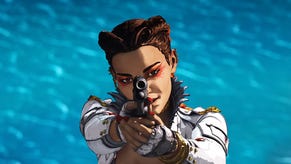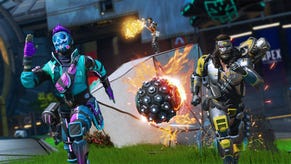Apex Legends' diverse cast is great for the present, but E3 left me excited for the future
Lifeline.
The video games of the 90s, although not that old in the grand scheme of things, are a world away from the video games of today in many ways. One of those ways is diversity.
It has now been four months since Apex Legends dropped in on the battle royale obsession. It felt great to play, with a brilliant ping system, an interesting environment and foundations in the Titanfall franchise. It was also a surprise that instead of a standard one-size-fits-all player where all customisable features were purely aesthetic, we got a character shooter instead, with eight, now nine including Octane, diverse personalities filling our screens.
Bangalore, your standard soldier with an attitude to boot, and Lifeline, everyone's favourite medic who can pull off a peace sign better than you, were standouts for me. Two black women? In a cast of nine? Never! I had never seen a game show off black women like this before. I know, I know - I played the Uncharted games. Yes, I am aware of Clementine and Riley. And no, Orisa certainly does not count. Apex Legends really is different, and even a cursory glance at the not-too-distant past shows why.
My brother is seven years older than me. He grew up through the '90s, and so my first games were older than I was. Out of the '90s, how many characters were black? I had a look at this data, which shows sales of most notable games in the last few decades, and then looked into the top five selling games worldwide and in North America to get a good look at trends through the years. As I investigated more and more, the representation of black characters in the '90s seemed to get worse, with odd creative choices by developers and straight up laughable attempts at diversity, including a personal favourite, Dee Jay.
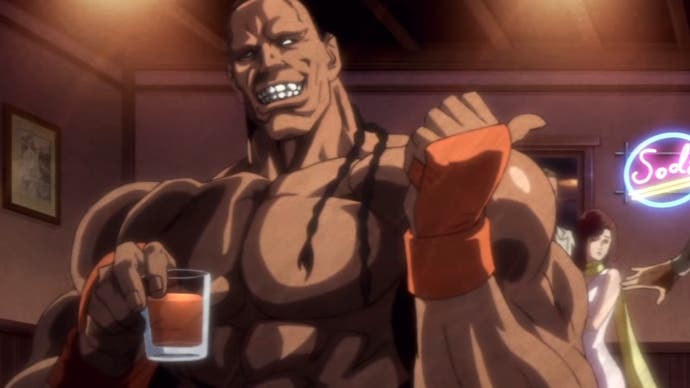
According to the worldwide data from the chart referenced above, between 1990-1994 there were about 137 characters who be considered at least humanoid and have a 'race' as it were. Three of them were black, which is only two per cent. These characters were Balrog from Street Fighter 2, Jax Briggs from Mortal Kombat 2 and the aforementioned Dee Jay from Super Street Fighter 2. That was it for representation during this time period. Despite the opportunity for diversity elsewhere, fighting games were the only genre to create black characters, and I suspect that's only due to the abundance of black fighters in real boxing and martial arts. Sadly, so many characters fitting in the mold of scary, might reveal themes on violent stereotyping, too.
Looking at 1995-1999, although there were definitely more black characters around, I can't credit 'representation' being any better for several reasons. Four significant characters were uninteresting Gerudo, a race in the Legend of Zelda games. Secondly, one is Grace Jone as Mayday in Goldeneye, which was really the film industry's doing, not the game's creative choice. Barret Wallace from Final Fantasy 7 is sort of a Mr. T rip-off, let's be honest, although Kiros Seagill from 8 was better. Now compare these examples to the plethora of interesting and memorable characters from the '90s and you can see why this research was disappointing.
Fast forward to 2019, and I can safely say representation is better. Not always great but better. Mii characters still lack distinct black hair textures and the Mario games have never heard of melanin. But this is why I am so excited about Apex Legends' Lifeline and Bangalore, and how Lifeline in particular is possibly the best character in the game thus far.
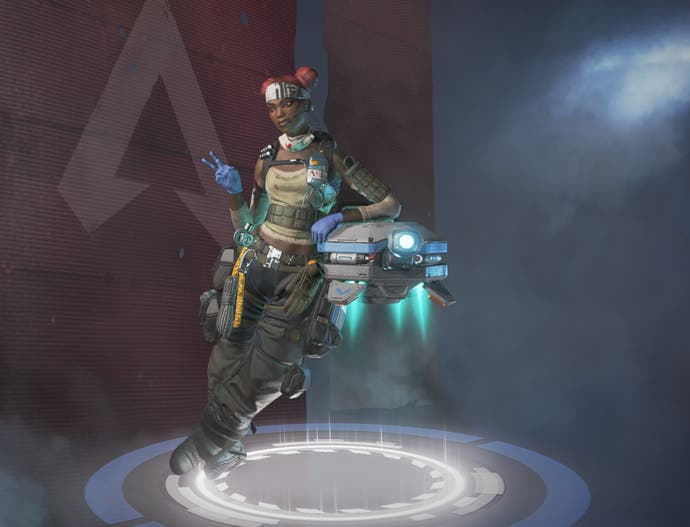
Overwatch, I hear you cry, what about Overwatch? Overwatch does diversity! Yes, it does, and it does it better than 90 per cent of other games, but those other games are a low bar to step over. Overwatch does have characters from a multitude of backgrounds and ethnicities, and currently there's a focus on their newest black character, Baptiste. However, I do not call Zenyatta or Orisa human, and when you really look at a cast of 30 people, shouldn't there be at least one black woman? At least one? Three robots, a hamster with a robot and a gorilla, yet not a black woman. Apex Legends launched with two. Checkmate.
While Apex Legends does better than most when it comes to diversity, there are niggles. The first is Lifeline's voice. Although I grew up in Britain, my heritage is mixed Caribbean. This means I got my adorable face pinched a lot by men and women with thick accents from a variety of Caribbean islands. Lifeline's accent is supposed to sound Caribbean in some respect, but I had a lot of trouble understanding her. I realised the voice actress is an American who's using more of an Americanised-Caribbean voice. The problem with an Americanised-Caribbean voice is that no-one actually speaks like that. It's the version of a Caribbean accent used to be more palatable to Western ears. You can see the same issue in a character like Calypso from the Pirates of the Caribbean franchise. You get the flavour of a Caribbean accent without struggling to understand it. (Something Blizzard often gets right with Overwatch is it gets in a voice actress or actor who knows the language or culture of the character they're playing character inside out.)
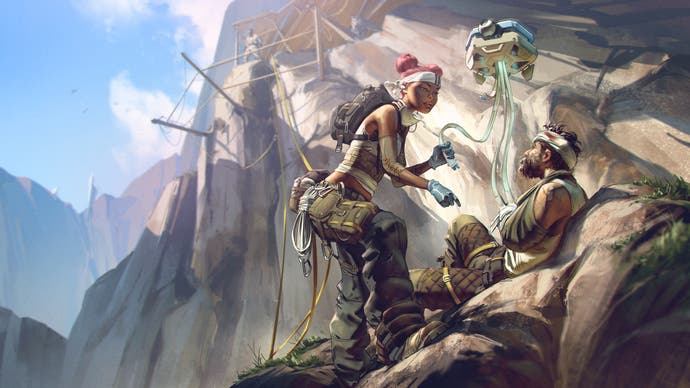
What Lifeline lacks in accurate vocals, however, she makes up for in personality. She is fun to listen to and to play (pretty much every team has one), and it's refreshing to see a playful dark-skinned character whose personality isn't based on stereotypical blackness. In a recent video Mela Lee, Lifeline's voice actress, mentions her multicultural background and how representation matters and I would agree, however putting on an accent doesn't necessarily mean good representation has been achieved. Lee brings a lot of life to Lifeline but I would still prefer a genuine accent, one that doesn't make me snort every time I hear her say 'big tings 'n dat'.
Another issue is I have no idea what ethnicity Wraith is supposed to be. When investigating diversity, there is no clear answer regarding what she race she represents. In a group chat of 40 people, a number of whom were Asian, none of us could work out whether her heirloom Kunai knife meant she was Asian, or whether she's racially ambiguous. Are her features a little off, or is she not Asian and the Kunai has nothing to do with the culture it comes from, despite its 'heirloom' status?
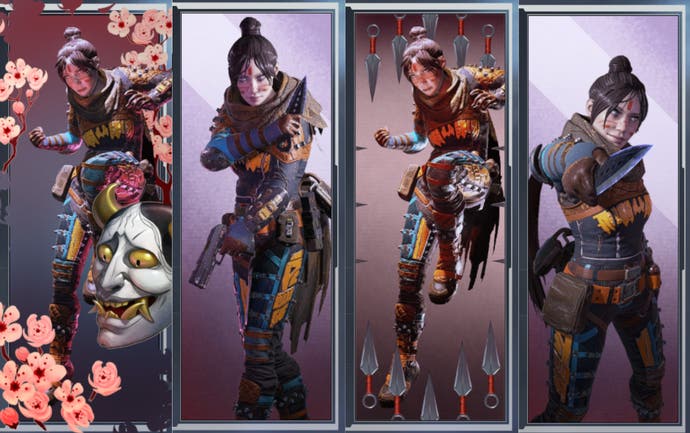
The true problem, however, is Apex Legends is the exception to the rule. As is Overwatch, for that matter. The gaming industry is still mostly white, mostly male and mostly cisgender and straight, and so are the games it produces. I remember the outrage when Battlefield 5 featured a woman on the cover. Even the cutest of all games aren't exempt. In the original Animal Crossing New Leaf, the only way to appear black was to stand outside in specific conditions so you'd tan. But don't get too carried away kids, you were only allowed one 'level' of darkness per day. Even then, the process reversed over time. I'm going out on a limb here, but I'm pretty sure that's not how one becomes black in real life. At least I've never had to do that. It's all good now however, as Animal Crossing: New Horizons has finally let the player choose their appearance, even if Tom Nook still drowns you in debt and leaves you on a deserted island.
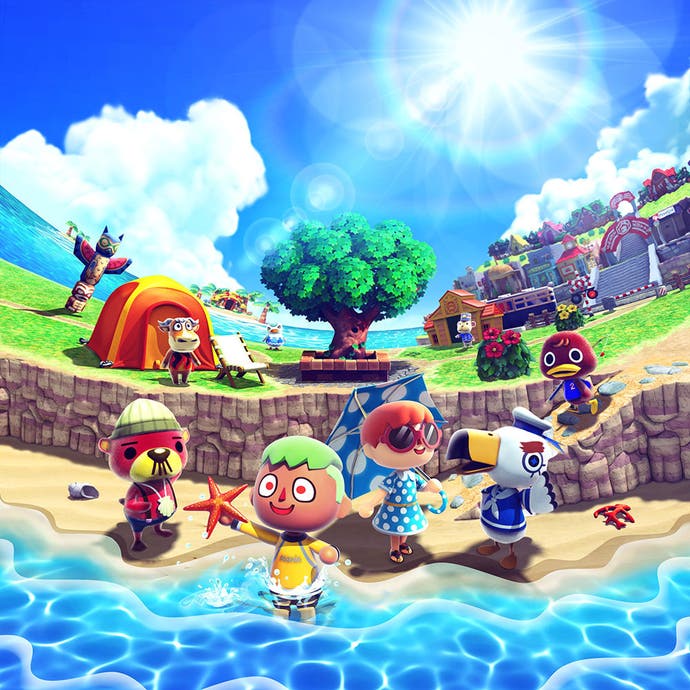
I wouldn't be giving credit where credit is due, however, if I didn't say I wasn't impressed at this year's E3 showings. Like I said, you can now be black in Animal Crossing, and not only that, but all parts of your characters appearance and now down to the player. In an interview with Polygon, New Horizons director Aya Kyogoku said all facial features and hairstyles are now 'gender-free', which is considerably more progressive than New Leaf.
Arkane impressed with a trailer for Deathloop, a mysterious new IP which appears to focus on the dynamic between life and death, and a woman and a man, both of whom are black. Being cautiously optimistic, this game seems a good example of when colour isn't character. They seemingly have different motivations, different styles, and different opinions on the same time loop, contrasting them and showing character beyond colour, or at least moving away from stereotyping. Pokemon hasn't always been the best at diversity either so revealing Sword and Shield details highlighting gym leader Nessa was fantastic. They've had black characters before like Lenora and Iris, but historically characters of colour in Pokemon have been few and far between. Watchdogs: Legion's gimmick is you can play as anyone in London, which is a notoriously multicultural city despite a post Brexit setting. Naomi, although upstaged by a grandma, kicked ass on screen and in my heart. She could be a good example of the diversity Ubisoft has included into the game considering its setting. Yet again someone who just happens to be black, rather than black being their character. Among all the doom and gloom people associate with diversity and inclusion, it's important to note there are steps being made towards games showing strengths in every type of person, which E3 2019 did well to showcase.
The point is, Apex Legends was a step in the right direction for EA and Respawn. And E3 suggested upcoming games will follow in its footsteps. But there's still so much work to be done. This isn't me begging for diversity. No black gamer wants diversity for the sake of it. They want to see developers have fun with animations, personalities and all things character design where skin just happens to be black. Real life has black people too. Why should they be a 'feature' of gaming?
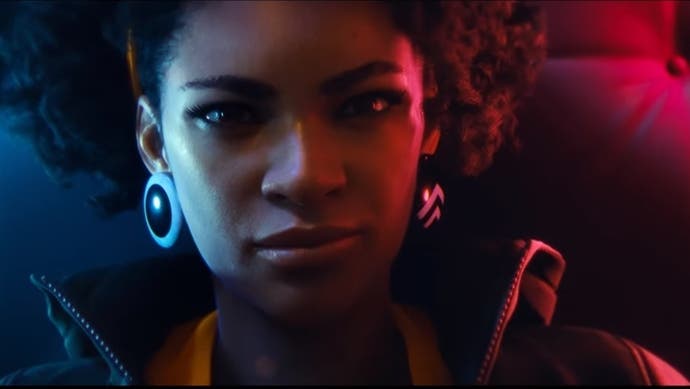



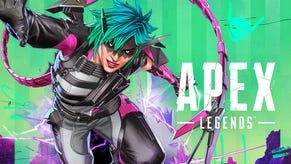
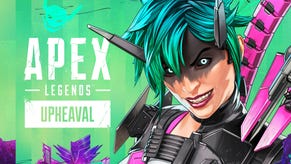

.png?width=291&height=164&fit=crop&quality=80&format=jpg&auto=webp)
